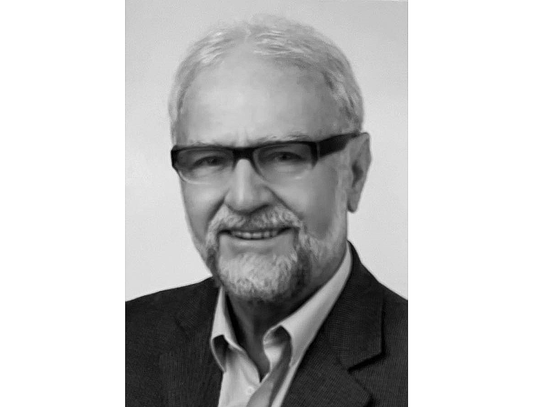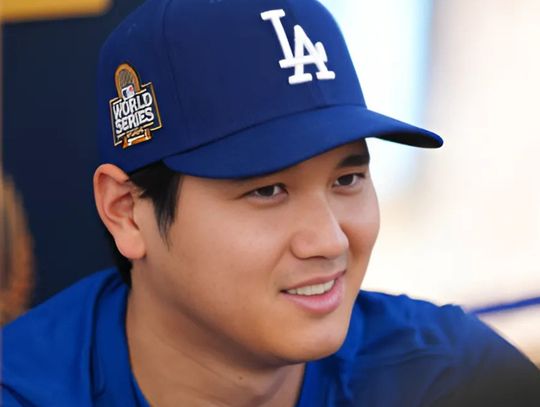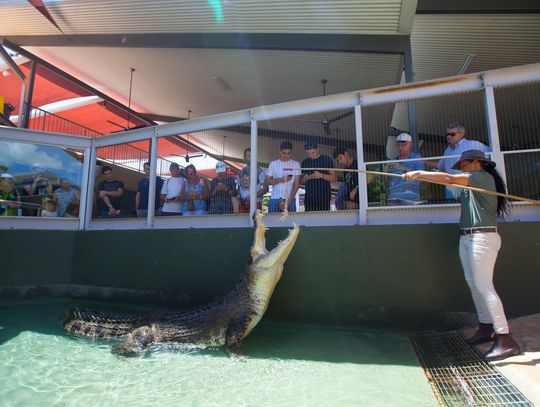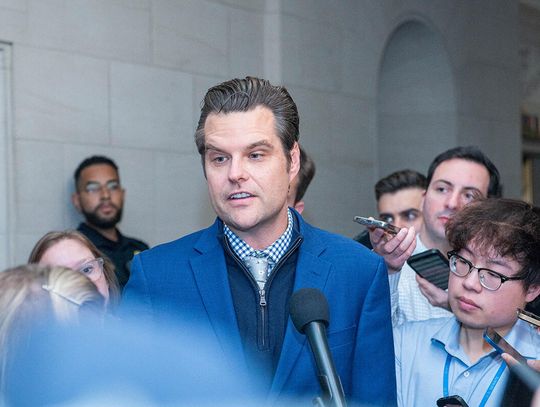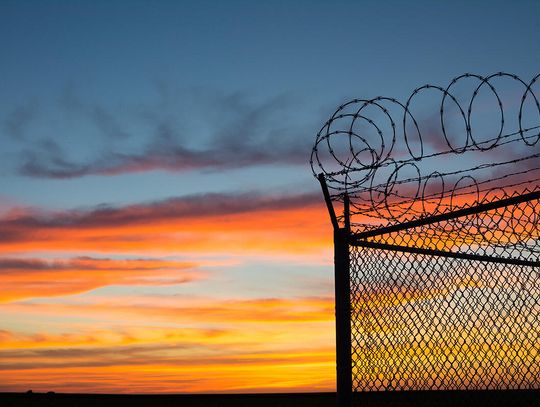Mój polski ojciec spędził pięć lat w systemie niemieckich obozów koncentracyjnych. Został schwytany przez Niemców jesienią 1940 roku i wysłany do Buchenwaldu, a wyzwolony ostatecznie przez żołnierzy amerykańskich wiosną 1945 roku.
W ciągu tych pięciu lat widział ukrzyżowanych i powieszonych mężczyzn, wykastrowanych i zamrożonych na śmierć, kobiety gwałcone i bite oraz rozstrzeliwane, ich piersi rozdzierane bagnetami, ich dzieci wyrywane i rzucane w powietrze jak piasek.
Nigdy nie myślał, że będzie wolny.
Myślał, że będzie niewolnikiem aż do śmierci.
Ostatniej zimy w obozie widział brutalność i śmierć, jakiej nie widział nigdy przedtem. W jedną z mroźnych nocy w styczniu 1945 roku, strażnicy wypędzili więźniów z baraków i zmusili ich do stania godzinami w ich podartych łachmanach na mrozie i w opadach śniegu, aby zabić słabszych, którzy nie mogli już pracować. Mój ojciec w jakiś sposób przeżył tę noc. Dwa miesiące później wraz z grupą innych więźniów z Buchenwaldu, został wysłany w marsz śmierci do innego obozu. Mężczyźni padali podczas maszerowania, a strażnicy do nich strzelali. To też jakoś przeżył.
I wtedy skończyła się wojna. To jest wiersz o tym, o tamtej wiośnie, kiedy wojna, która trwała tak długo i zabiła tak wielu ludzi, w końcu się skończyła. Wiersz pochodzi z mojej książki o mojej mamie i tacie, i ich doświadczeniu wojny – „Echoes of Tattered Tongues”.
WIOSNA KIEDY SKOŃCZYŁA SIĘ WOJNA
Przez długi czas wojny nie było w obozach.Mój ojciec pracował w polu i słuchałwiatru poruszającego ziarnem lub strażnikakrzyczącego komendy z daleka albo umierającego człowieka…
Ale jesienią mój ojciec usłyszał dudniącyszept amerykańskich samolotów, tak wysoko jakanioły, przecinające niebo, grzmotnawet Bóg w niebie musiałby usłyszeć…
W końcu, któregoś dnia wiedział, że tu jest wojna.W drzwiach baraku stanął żołnierz,Amerykanin, niski jak chłopiec i przestraszony,a mój ojciec zachwycił się cudem jego młodości
wziął go za ręce, objął i powiedział muże kocha go i jego matkę, i ojca,i będzie modlił się za wszystkie jego dzieci,a nawet wybacz mu ten grzech, że trwało to tak długo.
A Poem for Spring
My Polish father spent five years in the German concentration camp system. He was captured by the Germans in fall of 1940 and sent to Buchenwald and finally liberated by the Americans in spring of 1945.
During those five years, he saw men crucified and hung, castrated and frozen to death, women raped and beaten and shot, their breasts torn apart by bayonets, their babies thrown and scattered in the air like sand.
He never thought he would be free.
He thought he would be a slave until he died.
In the final winter of the war, he saw brutality and death like he had never seen before. On one frozen night in January of 1945, the guards rousted prisoners out of their barracks and forced them to stand in their torn rags for hours in the cold and falling snow to kill the weak prisoners, the ones who could no longer work. My father somehow survived that night. Two months later, he and groups of other prisoners from Buchenwald were sent on a death march to another camp. Men dropped as they walked, and guards shot them. He survived that too somehow.
And then the war ended. This is a poem about that, about that spring when the war that had gone on for so long and killed so many people, finally ended. It’s from my book about my mother and father and their experiences in the war, Echoes of Tattered Tongues.
IN THE SPRING THE WAR ENDED
For a long time the war wasn’t in the camps.My father worked in the fields and listenedto the wind moving the grain, or a guardshouting a command far off, or a man dying.
But in the fall, my father heard the rumblingwhisper of American planes, so high, likeangels, cutting through the sky, a thundereven God in Heaven would have to listen to.
At last, one day he knew the war was there.In the door of the barracks stood a soldier,an American, short like a boy and frightened,and my father marveled at the miracle of his youth
and took his hands and embraced him and told himhe loved him and his mother and father,and he would pray for all his childrenand even forgive him the sin of taking so long.
John Guzlowski
amerykański pisarz i poeta polskiego pochodzenia. Publikował w wielu pismach literackich, zarówno w USA, jak i za granicą, m.in. w „Writer’s Almanac”, „Akcent”, „Ontario Review” i „North American Review”. Jego wiersze i eseje opisujące przeżycia jego rodziców – robotników przymusowych w nazistowskich Niemczech oraz uchodźców wojennych, którzy emigrowali do Chicago – ukazały się we wspomnieniowym tomie pt. „Echoes of Tattered Tongues”. W 2017 roku książka ta zdobyła nagrodę poetycką im. Benjamina Franklina oraz nagrodę literacką Erica Hoffera za najbardziej prowokującą do myślenia książkę roku. Jest również autorem serii powieści kryminalnych o Hanku i Marvinie, których akcja toczy się w Chicago oraz powieści wojennej pt. „Retreat— A Love Story”. John Guzlowski jest emerytowanym profesorem Eastern Illinois University.-John Guzlowski's writing has been featured in Garrison Keillor’s Writer’s Almanac, Akcent, Ontario Review, North American Review, and other journals here and abroad. His poems and personal essays about his Polish parents’ experiences as slave laborers in Nazi Germany and refugees in Chicago appear in his memoir Echoes of Tattered Tongues. Echoes received the 2017 Benjamin Franklin Poetry Award and the Eric Hoffer Foundation's Montaigne Award for most thought-provoking book of the year. He is also the author of two Hank Purcell mysteries and the war novel Road of Bones. Guzlowski is a Professor Emeritus at Eastern Illinois University.










